Top Mountains To Climb Before Everest: A Prelude
Before you set your sights on Everest, it's crucial to acknowledge the physical and mental demands of such an expedition.
Everest is 29,032 feet (8,848 metres) and requires a unique set of skills and experiences that can only be honed through gradual acclimatisation.
This is where the mountains to climb before Everest come into play as crucial stepping stones towards reaching the pinnacle of mountaineering achievement.
So, what famous mountains of the world do you have to climb before Everest?
Read on as we tell share our best options, most of which we have first-hand experience of here at Skyhook.
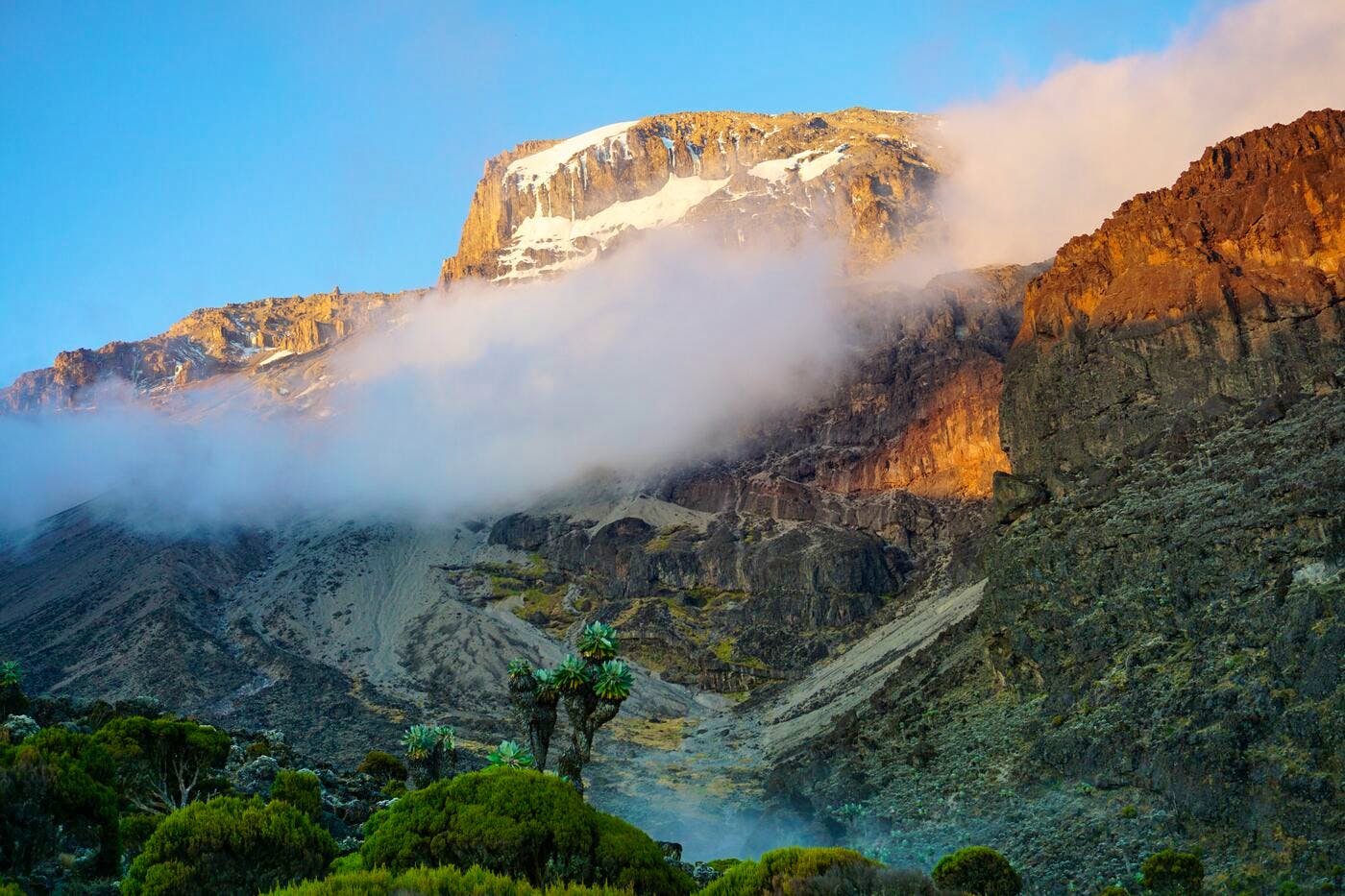
Kilimanjaro
One of the best mountains to climb before Everest has to be this African giant. Kilimanjaro in Tanzania presents a diverse challenge at 5,895 metres (19,341 feet).
When you conquer Kilimanjaro, you diversify your climbing experience after exposure to different altitudes and terrains.
The journey through different ecological zones – from rainforest to alpine desert to snow-capped summit – offers a unique experience.
For that, we recommend ticking Kili - one of the top mountains to climb in Africa off your bucket list before heading to the Himalayas.
It's a good strategy that will broaden your perspective and adaptability, essential qualities for the varied conditions Everest presents.
While Everest might be your ultimate quest, you'll enjoy climbing Kilimanjaro too. For starters, it is rightfully dubbed the 'Roof of Africa' because it's the highest peak of the continent, followed closely by Mount Kenya in the neighbouring country, Kenya.
See also: facts about Kilimanjaro
When you stand at Uhuru Peak Kilimanjaro, the highest peak, you will be at the highest point in Africa, and enjoy killer Kilimanjaro views from the top.
There's so much to take in, including the different landscapes in Tanzania and neighbouring East African countries.
Not only that, Kilimanjaro's climbing difficulty is relatively low - you will hike at varied paces to adjust to the thinner air, which is a good prelude to the tougher conditions on Everest.
Ready to go hiking? Here are our Kilimanjaro tours.
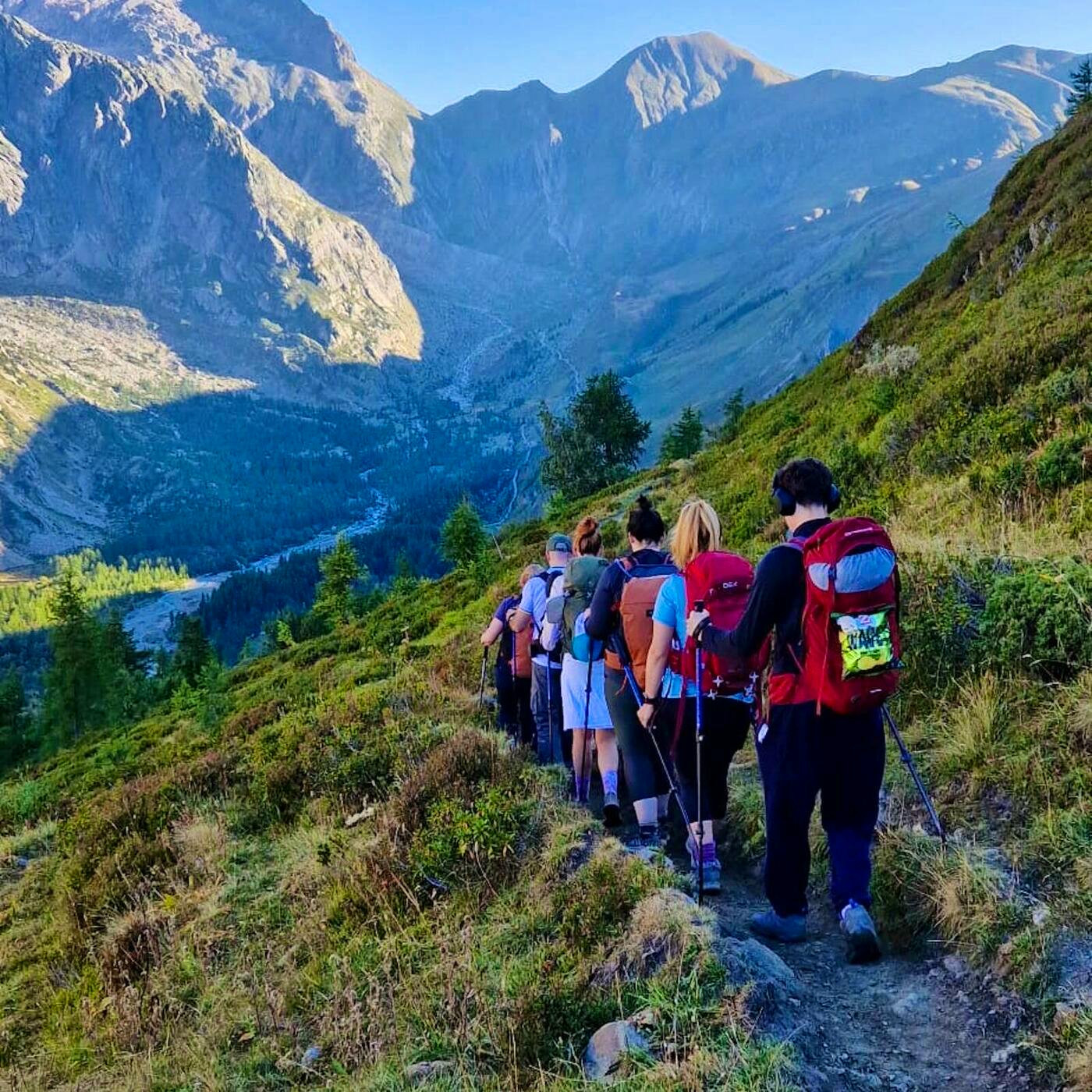
Mont Blanc
Mont Blanc in the Alps is the highest peak in Western Europe at 4,809 metres (15,777 feet). Climbing Mont Blanc is a must-try before you even think about Everest.
Picture scaling the highest peak in the Alps, and it's not just about height – it's about getting those climbing skills sharpened up. We're talking real-deal ice climbing, using crampons, and getting the hang of high-altitude life.
Mont Blanc is a high-altitude training ground to give you a taste of what to expect on Everest, from unpredictable weather to the importance of acclimatisation.
It's demanding, sure, but it's the kind of challenge that builds your endurance and prepares you mentally for the tougher Everest expedition.
See also: hiking the Pyrenees in France
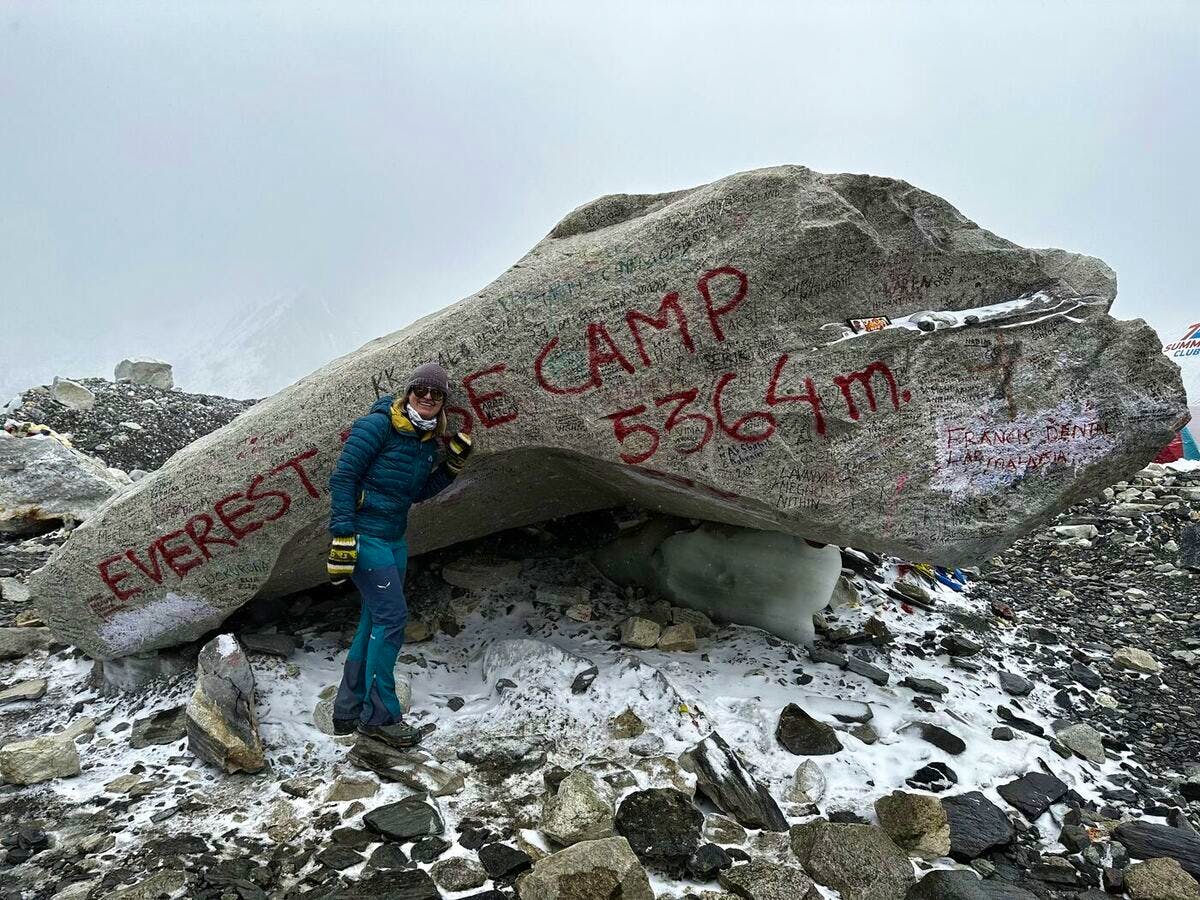

Latest Deals
Everest Base Camp
The Everest Base Camp (EBC) trek leads to the base of Everest, and one that draws thousands from around the globe to Nepal to follow in the footsteps of legendary explorers.
As one of the biggest mountains in the world, we recommend hiking EBC first. This will give you the real feel of what Everest is about, from the weather, terrain, and acclimation.
The EBC trek takes you through the Khumbu region of Nepal and through vibrant Sherpa villages, where you can soak in the rich history and culture of the Himalayas.
Key stops include Namche Bazaar, Tengboche, Dingboche, and Gorakshep, each offering unique insights and breathtaking views.
Typically, the classic EBC trek spans 12-14 days, starting and ending at Lukla, accessible by local flights.
Skyhook provides options for a straightforward 12-day EBC hike or a 15-day EBC trip that includes extra days in Kathmandu.
With expert Sherpa guides and trekking teams, you're in safe hands, whether you're a solo traveller joining an open group or trekking with companions.
While the climb doesn't involve technical climbing, physical fitness and stamina are essential. Accommodations are typically in teahouses, offering basic lodging and meals, with hotel stays in Kathmandu.
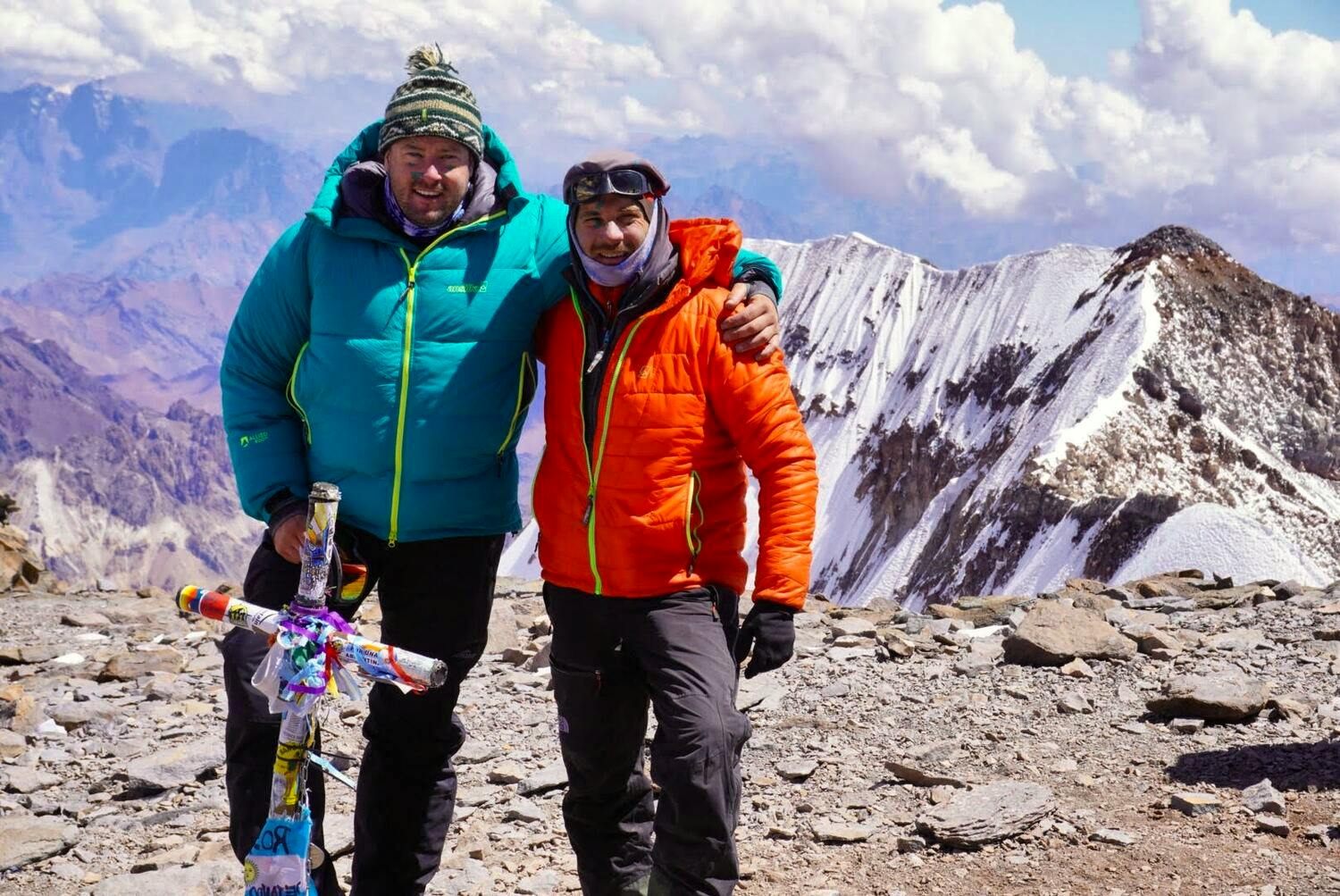
Aconcagua
Venturing to the Southern Hemisphere, Aconcagua in the Andes challenges you with its altitude and diverse terrain.
Standing as the highest peak in South America at 6,960 metres (22,837 feet), Aconcagua is among the strategic mountains to climb before Everest.
Scaling its heights prepares you for high-altitude conditions and varying landscapes, enhancing your adaptability—a crucial skill for the diverse challenges Everest presents.
See also: best mountains to climb in South America
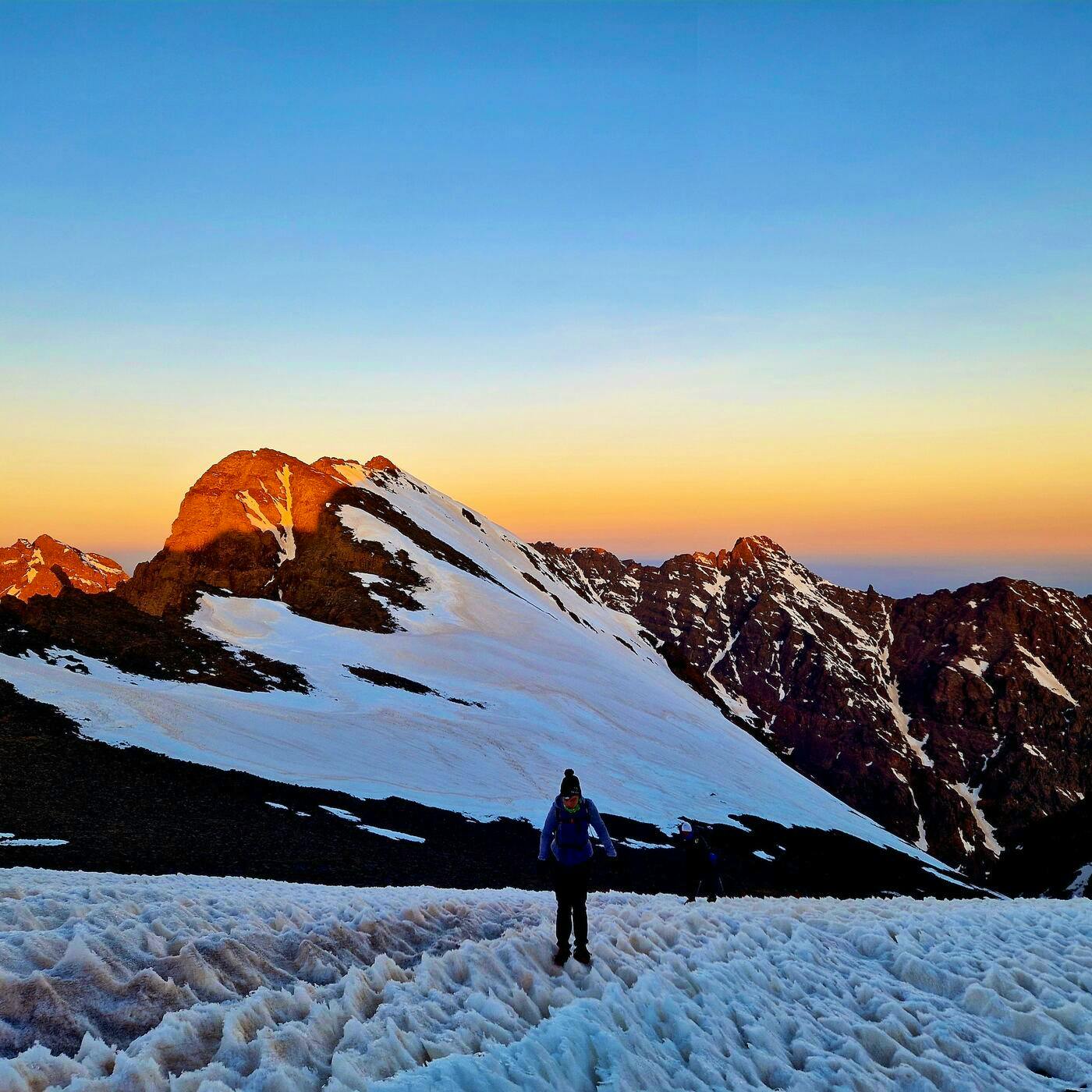
Mt Toubkal
Mount Toubkal, located in the High Atlas Mountains of Morocco, is the highest peak in North Africa, and a notable adventure before you climb Everest.
It rises to an elevation of 4,167 metres (13,671 feet) and offers a challenging yet accessible trekking experience.
The climb to the summit is non-technical, which means it doesn't require specialized mountaineering skills or equipment, so it's suitable for experienced hikers and those with good physical fitness.
The trek starts from the village of Imlil and can be completed in two to three days. As such, Mount Toubkal is a perfect short adventure to get used to higher attitudes without committing to longer expeditions.
Our Morocco adventure holidays at Skyhook Adventure offer a unique blend of natural beauty and cultural immersion.
As you ascend, you'll pass through remote villages and have the opportunity to experience the rich Berber culture.
The landscape varies from lush valleys to rocky mountain passes, culminating in stunning panoramic views from the summit.
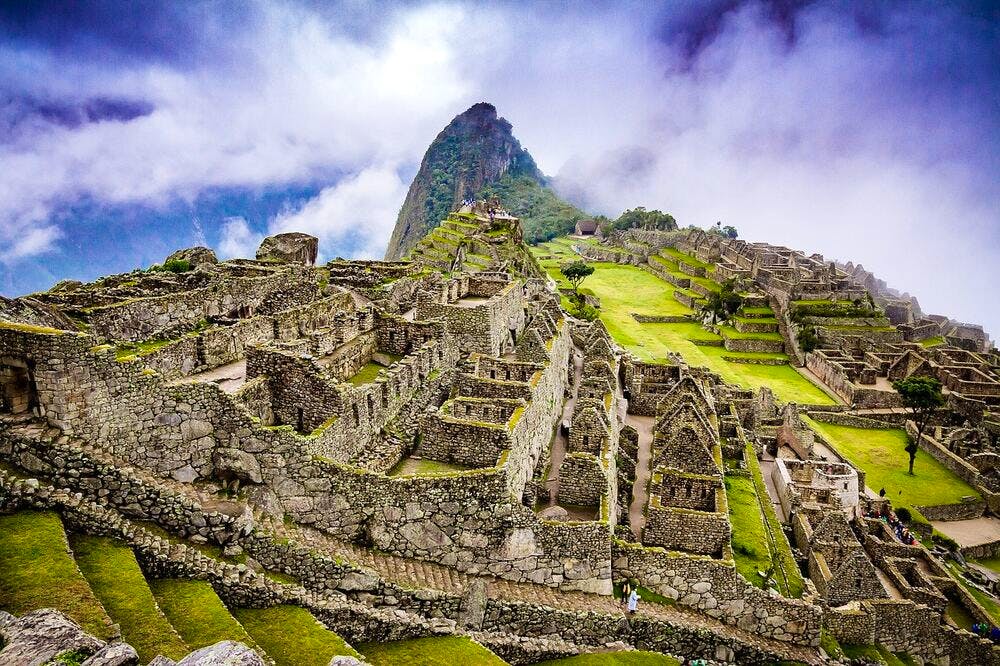
Machu Picchu
Hiking Machu Picchu before attempting Everest offers valuable acclimatisation and altitude experience.
While Machu Picchu is not as high as Everest Base Camp, it still sits at a significant altitude (around 2,430 metres or 7,970 feet). Trekking here allows your body to start adapting to higher elevations, a crucial aspect of a successful Everest expedition.
In terms of physical conditioning, the treks to Machu Picchu, such as the Inca Trail or the Salkantay Trek, involve several days of continuous walking over varied terrain. This helps in building stamina and physical endurance, both of which are key components for the demanding Everest climb.
Additionally, our Peru treks require mental strength, preparing you mentally for the rigors of more demanding expeditions like Everest.
The journey to Machu Picchu also provides experience in remote trekking. It takes you through remote areas where you learn to be self-sufficient, adapt to different conditions, and understand the logistics of trekking in isolated regions.
These are invaluable skills for any high-altitude expedition. Moreover, understanding and respecting local cultures is an important aspect of any expedition, and the experience in Peru sets a good precedent for the cultural sensitivity required in Nepal.
See also: mountains in Peru to climb
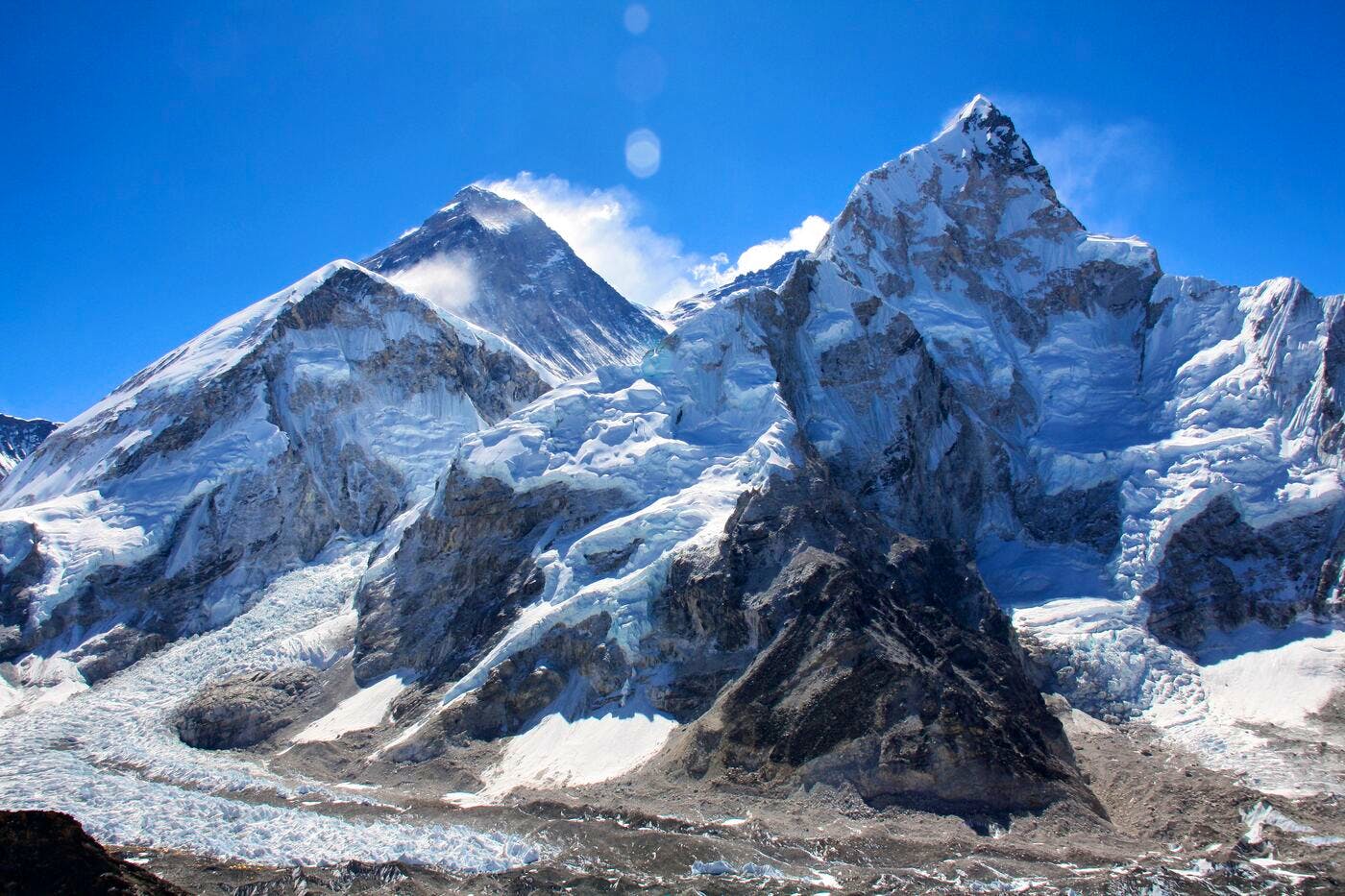
Conclusion
Embarking on the Everest journey demands more than just physical prowess; it requires a nuanced approach to high-altitude challenges.
Kilimanjaro, Mont Blanc, Aconcagua, Mt Toubkal, and Machu Picchu should be on your bucket list mountains to climb.
They serve as crucial milestones, each offering diverse terrains and altitude experiences of the top mountains to climb before Everest.
So, start your ascent wisely, with us at Skyhook Adventure as your trusted guide.
Read More Mountains Articles
Top Hiking Trips Before Everest From Skyhook
More Popular Everest Trips With Skyhook
Find your next adventure
Why Skyhook?
Join over 27,000 Skyhook adventurers who've used our platform to book directly with our vetted local guides, at local prices (we never markup).
Expert Local Guides
Experienced local guides, handpicked by us.
Best Prices
Never pay a markup on the local guide's price.
Exclusive Club
Earn loyalty rewards every time you travel.
Great Social Vibes
Small group tours provide a richer experience.
Stellar Feedback
Over 2,800 reviews, average of 4.9/5 stars.












